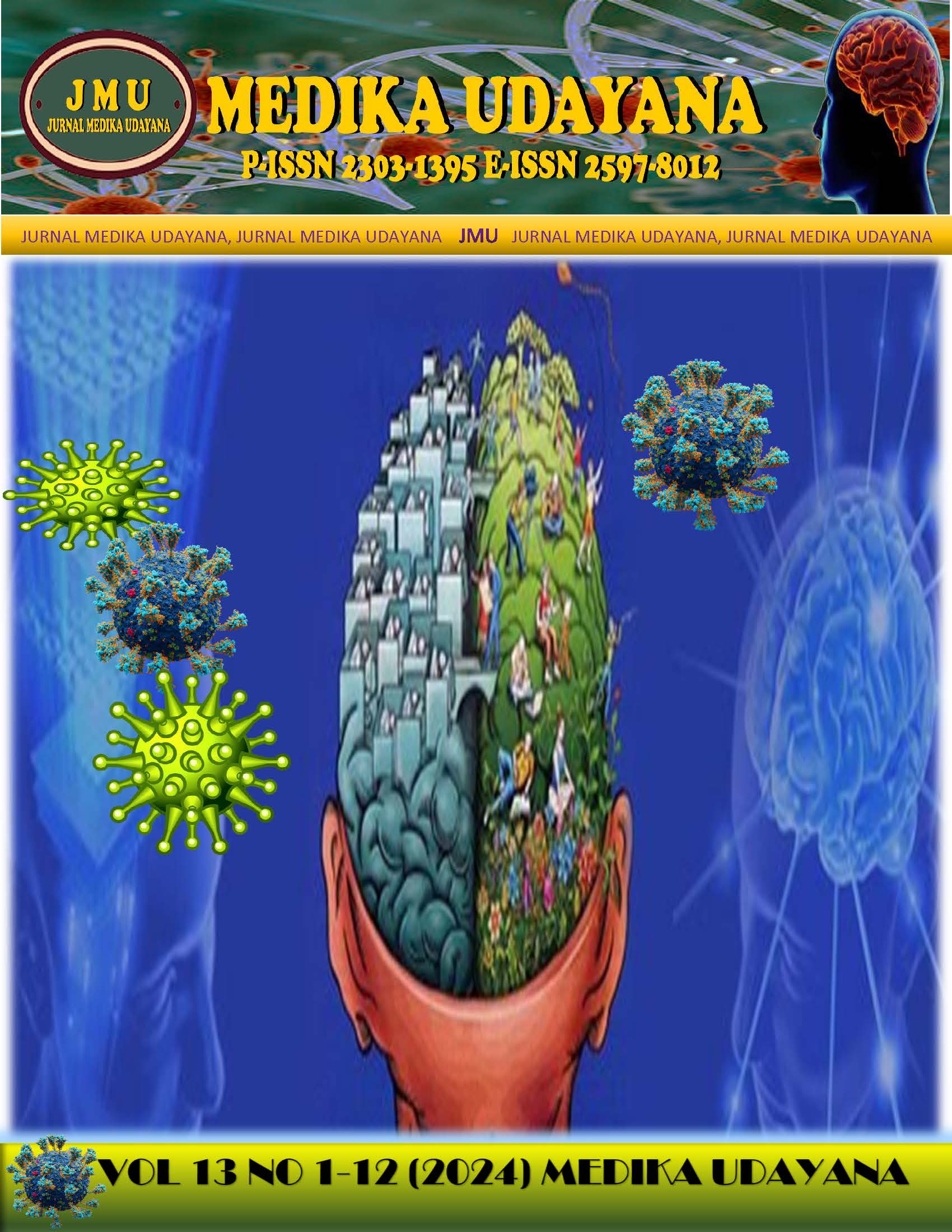THE EFFECT OF PANDAN WANGI ROOTS ETHANOL EXTRACT (Pandanus amaryllifolius Roxb.) ON THE DEGREE OF PLASMODIUM BERGHEI PARASITEMIA IN VIVO
Abstract
Malaria is an disease caused by Plasmodium genus and transmitted by female Anopheles mosquitoes via bites. The occurrence of antimalarial drug resistance in various places, such as Chloroquine and Artemisinin Combination Therapy, be a challenge for researchers to find new herbal and effective alternative antimalarial drugs. Pandan Wangi roots (Pandanus amaryllifolius Roxb.) contain compounds with antimalarial properties. This study aims to determine the effect of Pandan Wangi roots ethanol extract at doses of 1, 100, and 1,000 mg/kgBW (Body Weight on the degree of Plasmodium berghei parasitemia in vivo. This study employs an experimental in vivo method using the Post-Test Only Controlled Group Design. Sample of 24 mice were divided into one negative control group and three treatment groups. The data analysis technique employed is One Way ANOVA and Post Hoc Test. In this study, the mean degree of parasitemia in negative control group was 32.60%, treatment group with dose of 1 mg/kgBW was 22.27%, treatment group with dose of 100 mg/kgBW was 18.49%, and treatment group with dose of 1,000 mg/kgBW was 14.88%. The One Way ANOVA analysis resulted in p-value of 0.001, which is < 0.05, indicating a significant difference in the average degree of parasitemia among the three treatment groups. Thus, the effect of Pandan Wangi roots ethanol extract has antimalarial activity. Administration dose of 1,000 mg/kgBW proved to be the most effective in suppressing the growth of Plasmodium berghei parasitemia.
Keywords : Pandanus amaryllifolius Roxb., Antimalarial, Plasmodium berghei, Degree of Parasitemia











